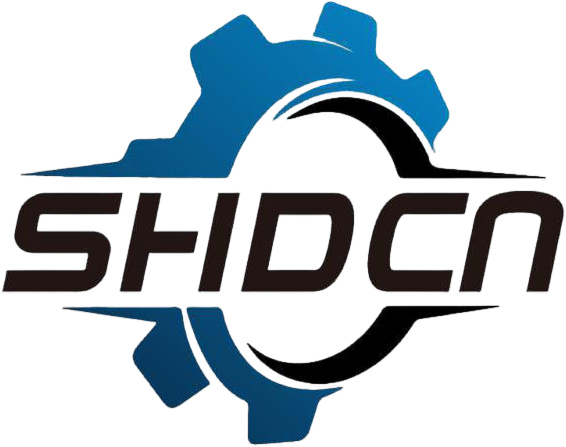ក្នុងរយៈពេលប៉ុន្មានឆ្នាំកន្លងទៅ ម៉ាស៊ីនបុកឈើឌីសែលបានក្លាយជាឧបករណ៍ដែលមនុស្សពេញនិយមប្រើប្រាស់ទាំងសម្រាប់អ្នកទទួលជើងសាងសង់ធំៗ និងអ្នកដាំផ្កាមិនប្រចាំថ្ងៃ។ ការកើនឡើងនៃចំណាប់អារម្មណ៍នេះមិនមែនជាការប៉ុនប៉ងនោះទេ។ មនុស្សតែងតែនិយាយអំពីថាឧបករណ៍ទាំងនេះមានថាមពលខ្លាំង ប្រើប្រាស់បានយូរ និងមានភាពរឹងមាំ។ ជាមួយនឹងការដែលម្ចាស់ផ្ទះ និងក្រុមហ៊ុនកាន់តែស្វែងរកវិធីសាស្ត្របៃតងក្នុងការសំអាតសំណល់នៅក្នុងវាលស្រែ ម៉ាស៊ីនបុកឈើឌីសែលកំពុងឡើងឋានៈជាអាទិភាពដំបូង
ថាមពល និងប្រសិទ្ធភាពល្អប្រសើរជាងគេ៖ ដោះស្រាយការងារប្រភេទធ្ងន់
មូលហេតុដែលម៉ាស៊ីនបុកឈើទាំងនេះកំពុងទទួលបានការគាំទ្រយ៉ាងខ្លាំងគឺដោយសារតែកម្លាំងខាងក្នុងដែលខ្លាំងជាងម៉ូដែលប្រើប្រេងសាំង។ ម៉ូទ័រដែលប្រើប្រេង diesel ផលិតបាននូវកំលាំងខ្ពស់នៅក្នុង RPM ទាប ដែលបកប្រែទៅជាការកាត់បន្តដោយរលូន និងថេរដោយគ្មានការបំបាក់ម៉ូទ័រពេញមួយថ្ងៃ។ គុណសម្បត្តិនេះមានសារសំខាន់បំផុតចំពោះក្រុមការងារបៃតង និងក្រុមការងារកាត់ដំបូលដែលមកដល់ជាមួយនឹងគំនរដើមឈើ ស្លឹក និងក្នុងករណីខ្លះមានដើមឈើខ្លីៗ។ ឧទាហរណ៍ នៅពេលដែលប្រទាក់ប្រលែងជាមួយដើមឈើធំៗ ដែលម៉ាស៊ីនបុកប្រេងសាំងប្រហែលជាមានបញ្ហា ម៉ាស៊ីនបុកប្រេង diesel អាចបុកវាបានយ៉ាងរលូន ខណៈដែលរក្សានូវល្បឿនកាត់ថេរ។ ដោយសារតែសមត្ថភាពក្នុងការបុកវត្ថុប្រផុតនេះ ពួកគេអាចបញ្ចប់ការងារបានលឿន និងចំណាយប្រេង និងថែទាំតិចជាង។ លើសពីនេះទៀត ការប្រើប្រេងប្រកបដោយប្រសិទ្ធភាពរបស់ម៉ូទ័រ diesel មានន័យថាមានពេលប្រតិបត្តិការយូរជាងមុនរវាងការបំពេញប្រេងឡើងវិញ ដែលជាអត្ថប្រយោជន៍យ៉ាងធំសម្រាប់គម្រោងធំៗដែលត្រូវការការងារបន្ត។
ភាពធន់ប្រើប្រាស់បានយូរ៖ ត្រូវបានសាងសង់សម្រាប់ការប្រើប្រាស់រយៈពេលវែង
ម៉ាស៊ីនបុកឈើដែលប្រើប្រាស់ប្រេង diesel ត្រូវបានសាងសង់ឱ្យមានភាពធន់យូរអង្វែង ហើយនេះក៏ជាមូលហេតុមួយដែលធ្វើឱ្យវានៅតែពេញនិយមនៅតាមវាលការងារ។ អ្នកផលិតប្រើប្រាស់ផ្នែកមានគុណភាពខ្ពស់ និងបច្ចេកវិទ្យាស៊ីវិលដើម្បីឱ្យម៉ាស៊ីនអាចទប់ទល់នឹងការប៉ះទង្គិច និងការបាក់ខ្វះដែលកើតឡើងជាប្រចាំថ្ងៃ។ គ្រាប់ម៉ាស៊ីនភាគច្រើនត្រូវបានផលិតពីដែកក្រាស់ ហើយផ្នែកសំខាន់ៗដូចជាកង្កាប់ និងធ្មេញបុកត្រូវបានផលិតពីអាលោហៈដែលមានភាពរឹងមាំខ្ពស់ ដែលអាចទប់ទល់នឹងការខូចខាតបាន។ ភាពរឹងមាំនេះមិនត្រឹមតែធ្វើឱ្យម៉ាស៊ីនបុកបន្តដំណើរការបានយូរប៉ុណ្ណោះទេ ប៉ុន្តែថែមទាំងកាត់បន្ថយការទៅកាន់ហាង និងការចំណាយថ្លៃជួសជុលដោយមិនបានរំពឹងទុកផងដែរ។ ចំពោះអ្នកទទួលដំណើរការ និងអាជីវកម្មដែលប្រើប្រាស់ម៉ាស៊ីនបុកគ្រប់ថ្ងៃ ការសន្សំថ្លៃថែទាំទាំងនេះអាចជួយបង្កើនប្រាក់ចំណេញបានយ៉ាងច្រើនក្នុងរយៈពេលវែង។ សូម្បីតែនៅក្នុងស្ថានភាពអាកាសធាតុមិនអំណោយដែលធ្ងន់ធ្ងរ ដូចជាក្តៅខ្លាំង ឬត្រជាក់ខ្លាំងក៏ដោយ ម៉ាស៊ីនបុកប្រេង diesel ក៏មានទំនោរខូចខាតតិចជាងម៉ាស៊ីនបុកដែលប្រើប្រាស់ប្រេងសាំង។
អត្ថប្រយោជន៍បរិស្ថាន៖ សម្របខ្លួនឱ្យសอดទៅនឹងគោលដៅនៃការអភិវឌ្ឍន៍ប្រកបដោយនិរន្តរភាព
ក្រៅពីភាពធន់ គ្រឿងចេញជាក់ស្តែងដំណើរការដោយប្រេង diesel មានចំណែកល្អប្រសើរជាងមុនក្នុងការរក្សាសុវត្ថិភាពដល់ភពផែនដី។ ការប្រើប្រាស់ឡើងវិញនូវសំណល់ឈើទៅជាជីខាំឬជីកំប៉ុសត្រូវបានធ្វើឱ្យស្រស់ស្អាតជាមួយគោលដៅនៃការអភិវឌ្ឍន៍និរន្តរភាព ដែលក្រុមហ៊ុនជាច្រើនកំពុងអនុវត្ត។ នៅពេលដែលគ្រឿងមួយបំបែកឈើដុះ ជាដុំឈើ និងសំណល់ផ្សេងៗទៀតនៅក្នុងទីស្រែចូលទៅជាសម្ភារៈដែលអាចប្រើប្រាស់បាន វានឹងរក្សាសម្ភារៈទាំងនោះមិនឱ្យទៅកាន់សាកសពផ្ទុកសំរាមដែលបានបំពេញរួចហើយ ហើយក៏ជួយចិញ្ចឹមនូវសេដ្ឋកិច្ចបង្វិល។ ឧទាហរណ៍ ក្រុមហ៊ុនផ្នែកបុទ្ធសួនដែលប្រើគ្រឿងបំបែកឈើដំណើរការដោយប្រេង diesel អាចដំណើរការសំណល់ឈើពីអចលនទ្រព្យរបស់អតិថិជនទៅជាជីខាំ ដែលបន្ទាប់មកត្រូវបានប្រើនៅក្នុងសួនរបស់អតិថិជន ដោយកាត់បន្ថយការប្រើជីគីមី និងជំរុញដីអោយមានសុខភាពល្អ។ ដោយសារតែអតិថិជនកាន់តែច្រើនជ្រើសរើសផលិតផល និងការអនុវត្តដែលយកចិត្តទុកដាក់លើបរិស្ថាន តម្រូវការលើឧបករណ៍ដំណើរការដោយប្រេង diesel ក៏កើនឡើងដែរ។ លើសពីនេះ ម៉ូទ័រប្រេង diesel បែបទំនើបត្រូវបានរចនាមកជាមួយការបញ្ចេញឧស្ម័នបំពុលតិចតួច ដែលធ្វើឱ្យវាមានបរិស្ថានប្រសើរជាងម៉ូដែលចាស់ៗ
ភាពបត់បែនកាន់តែប្រសើរ៖ ការធ្វើឱ្យសមស្របទៅនឹងការងារផ្សេងៗ
ក្រៅពីថាមពល និងសមត្ថភាពបៃតងរបស់វា គ្រឿងចេញដុំឈើដែលប្រើប្រាស់ម៉ូទ័រដីស៊ែល មានភាពបត់បែនច្រើនជាងមុនយ៉ាងច្បាស់។ គ្រឿងម៉ូដែលទំនើបភាគច្រើនមានមុខងារផ្សេងៗដូចជា ទំហំដុំឈើអាចផ្លាស់ប្តូរបាន មុំបញ្ចូលវត្ថុធាតុចំនួនពីរ និងឧបករណ៍ការពារដែលអាចផ្លាស់ប្តូរបានភ្លាមៗ។ ឧទាហរណ៍ នៅពេលធ្វើការនៅលើអចលនទ្រព្យស៊ីវិលដែលមានរុក្ខជាតិដែលងាយនឹងខូចខាត អ្នកបើកគ្រឿងម៉ាស៊ីនអាចកែតម្រូវមុំបញ្ចូលវត្ថុធាតុដើម្បីការពាររុក្ខជាតិនៅជុំវិញខ្លួនមិនឱ្យខូច។ នៅពេលផ្លាស់ប្តូរទៅជាគម្រោងសំអាតដីធនធានពាណិជ្ជកម្ម មុខងារផលិតដុំឈើមានទំហំផ្សេងគ្នា អាចផលិតដុំឈើធំៗដែលសាកសមសម្រាប់ផលិតថាមពលជីវជាតិ។ ដោយសារមុខងារទាំងនេះ អ្នកអាចកែតម្រូវម៉ាស៊ីននៅទីកន្លែងធ្វើការដោយផ្ទាល់ ពីការកាត់ដុំឈើស្រាល រហូតដល់សំអាតដីក្នុងកម្រិតធំៗ ហើយនៅតែទទួលបានលទ្ធផលដែលស្អាតនិងល្អ។
ការអនុវត្តបច្ចេកវិទ្យាឆ្លាតវៃ៖ ការកែលម្អបទពិសោធន៍នៃអ្នកប្រើប្រាស់
ខណៈដែលក្រុមហ៊ុនផលិតកាន់តែចេញនូវគំរូថ្មីៗ ផ្នែកម៉ាស៊ីនបុកឈើឌីសែលក៏កំពុងអនុវត្តន៍បច្ចេកវិទ្យាឆ្លាតវៃដែរ។ ប្រព័ន្ធបើកបរស៊ីប្រេងសាំងតិច ប៉ុន្តែផ្តល់នូវកំលាំងបង្វិលច្រើន ខណៈដែលការធ្វើបច្ចុប្បន្នភាពការពារសំលោង បានកាត់បន្ថយសំលោងឱ្យនៅស្ងៀម។ លើសពីនេះទៀត ផ្ទាំងបញ្ជាស្អាតជាងមុន ខ្សែរកូដពណ៌ និងផ្ទាំងបើកបរទ្វារសម្រាប់ការពិនិត្យប្រចាំថ្ងៃ ធានាថាអ្នកប្រើប្រាស់ដំបូងអាចបើកបរ និងថែទាំម៉ាស៊ីនបានដោយប្រសើរ។ ម៉ូឌែលខ្លះមានឧបករណ៍ GPS ដែលអនុញ្ញាតឱ្យអ្នកគ្រប់គ្រងរថយន្តតាមដានទីតាំង និងសមត្ថភាពរបស់ម៉ាស៊ីនបុកឈើបានក្នុងពេលវេលាជាក់ស្តែង ដើម្បីប្រើប្រាស់ប្រកបដោយប្រសិទ្ធិភាព និងកំណត់ថ្ងៃថែទាំ។
នៅពេលយកវាមកផ្សំគ្នា ការអភិវឌ្ឍទាំងនេះធ្វើឱ្យយើងយល់ថា ហេតុអ្វីបានជាឧបករណ៍បុកឈើដែលប្រើប្រាស់ឥន្ធនៈដែលមានសមត្ថភាពខ្លាំង បានក្លាយជាឧបករណ៍ចាំបាច់សម្រាប់អ្នករចនាទេសភាព និងអ្នកព្យាបាលព្រៃឈើ។ នៅទូទាំងពិភពលោក និន្នាការនេះមិនបង្ហាញសញ្ញានៃការយឺតទេ ដោយអ្នកជំនាញជឿថា តម្រូវការនឹងកើនឡើងយ៉ាងទៀងទាត់ ដោយសារមនុស្សកំពុងស្វែងរកវិធីដែលអាចទុកចិត្តបាន ដើម្បីកែច្នៃសំណល់ឈើឡើងវិញនៅតំបន់កន្លែងការងារ។ ការចាប់អារម្មណ៍លើគំរូថ្មីៗបំផុត និងបច្ចេកវិទ្យាដែលវាផ្ទុកមក នឹងជួយអ្នកទិញ ជ្រើសរើសយកម៉ាស៊ីនដែលសាកសមនឹងការងាររបស់ពួកគេ ទាំងបច្ចុប្បន្ន និងអនាគត។
ទំព័រ ដើម
- ថាមពល និងប្រសិទ្ធភាពល្អប្រសើរជាងគេ៖ ដោះស្រាយការងារប្រភេទធ្ងន់
- ភាពធន់ប្រើប្រាស់បានយូរ៖ ត្រូវបានសាងសង់សម្រាប់ការប្រើប្រាស់រយៈពេលវែង
- អត្ថប្រយោជន៍បរិស្ថាន៖ សម្របខ្លួនឱ្យសอดទៅនឹងគោលដៅនៃការអភិវឌ្ឍន៍ប្រកបដោយនិរន្តរភាព
- ភាពបត់បែនកាន់តែប្រសើរ៖ ការធ្វើឱ្យសមស្របទៅនឹងការងារផ្សេងៗ
- ការអនុវត្តបច្ចេកវិទ្យាឆ្លាតវៃ៖ ការកែលម្អបទពិសោធន៍នៃអ្នកប្រើប្រាស់

